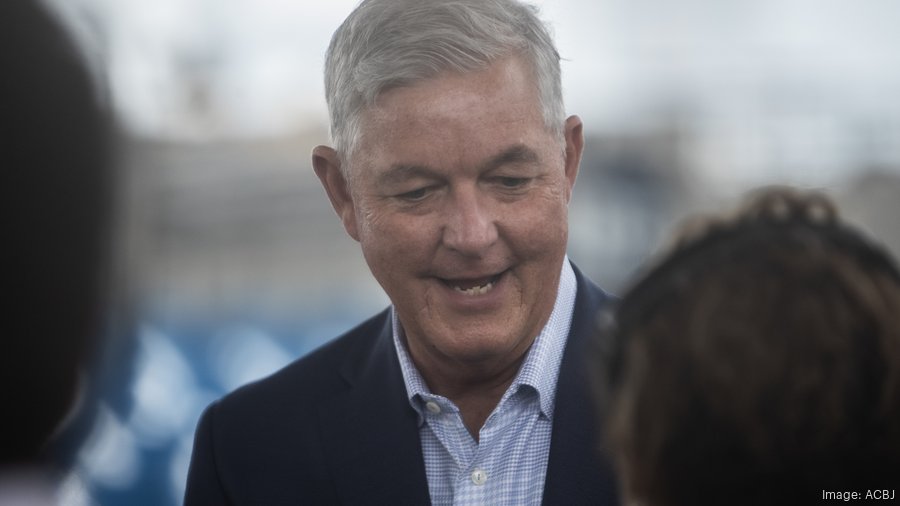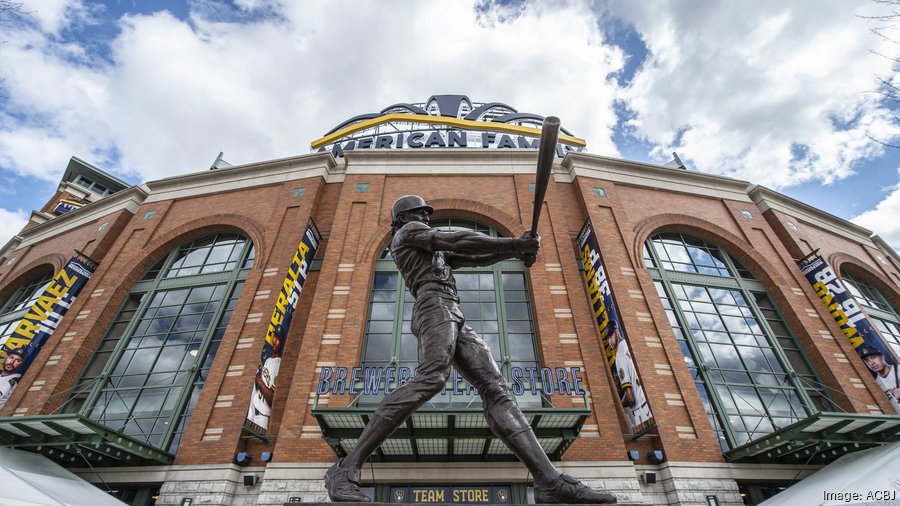Listen to this article 4 min
For Tim Sheehy, the board chair for the Southeast Wisconsin Professional Baseball Park District, there is not a sense of panic to the discussion around funding American Family Field and keeping Major League Baseball in Milwaukee.
There is, however, a sense of urgency as state politicians debate the potential for earmarking a portion of the budget surplus for this cause.
In February of this year, Wisconsin Gov. Tony Evers proposed a one-time $290 million cash investment to the Southeast Wisconsin Professional Baseball Park District, the agency that oversees the baseball stadium that opened in 2001. The state has a historic $7 billion budget surplus.
Through the cash investment, the district would have necessary funds to maintain the ballpark. With that funding, the Milwaukee Brewers, who have a lease with the district, would commit to a new 20-year lease and non-relocation agreement to keep the team in Milwaukee through December 2043. The team's current lease with the district goes until 2030.

The proposal was met with significant opposition, including from Wisconsin Assembly Speaker Robin Vos (R-Rochester).
The urgency, Sheehy said, comes in the kinds of investments that the district park board can and will approve. He used the analogy of home ownership. If a person plans to be in his or her house for another five years, the owner may defer on a roof replacement and pass it to a new owner. If he or she will be in the house for another 20 years, however, the owner will make the necessary capital investment of a new roof.
"No pun intended, that's very much the situation we're in with American Family Field," Sheehy said.
The ballpark district will weigh the options for capital investments depending on if the team has a lease through 2030 versus one that runs until nearly 2050.
While there are no specific updates to the discussions in the state Capitol, Sheehy said the good news is everyone is still talking, and while there is not universal support, there is broad support to put a package together. Sheehy has been meeting with many of the involved parties including Milwaukee Mayor Cavalier Johnson, Milwaukee County Executive David Crowley, Wisconsin Gov. Tony Evers and Speaker Vos.
"The same elements are in play, state support, local support and support from the Brewers, so the process continues to evolve," Sheehy said. "There is an identifiable revenue source that comes from the economic activity of the ballpark."
Sheehy said that comes in the form of about $25 million in tax revenue that comes from income taxes on player payroll and sales taxes.
"That’s an obvious place to start because without Major League Baseball, we most definitely wouldn’t have about $12-14 million of income tax revenue that comes from player payroll, so that’s an obvious building block for the discussion," Sheehy said.
While the fear comes with the potential of losing Major League Baseball in Milwaukee and the team going to other cities such as Charlotte, North Carolina; Nashville, Tennessee, or Salt Lake City, Sheehy said there is one very concrete advantage to Milwaukee. All of these cities have to build a new ballpark.
"We’re talking about a lease extension to 2050 that doesn’t require a new stadium," Sheehy said. "They’re all faced with the challenge of building a $1.5 billion stadium, so we’ve got a lot going for us."
